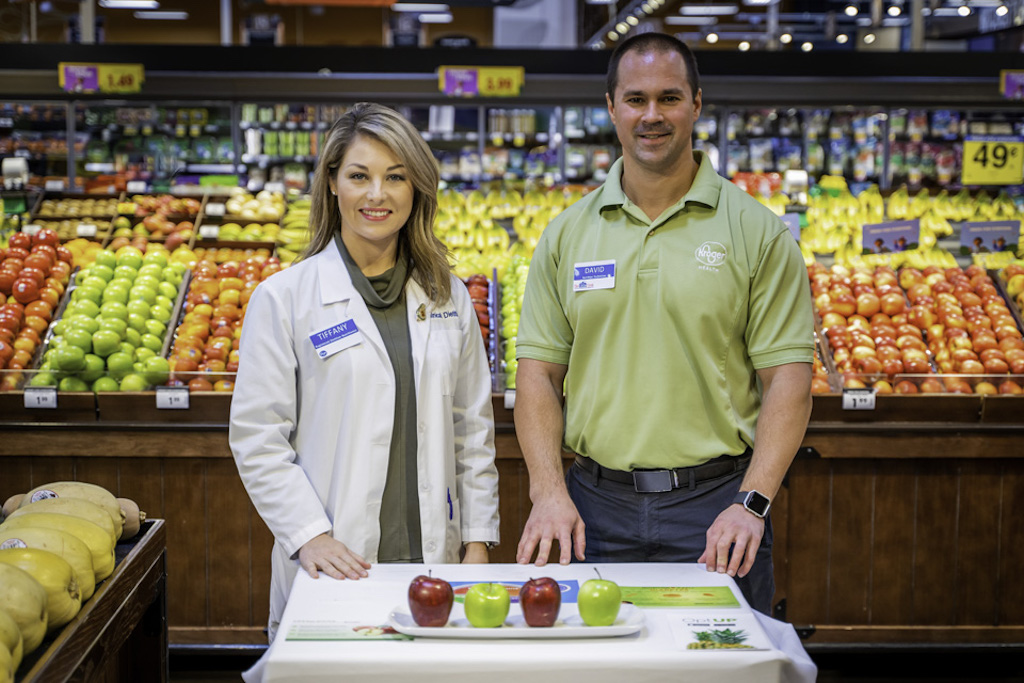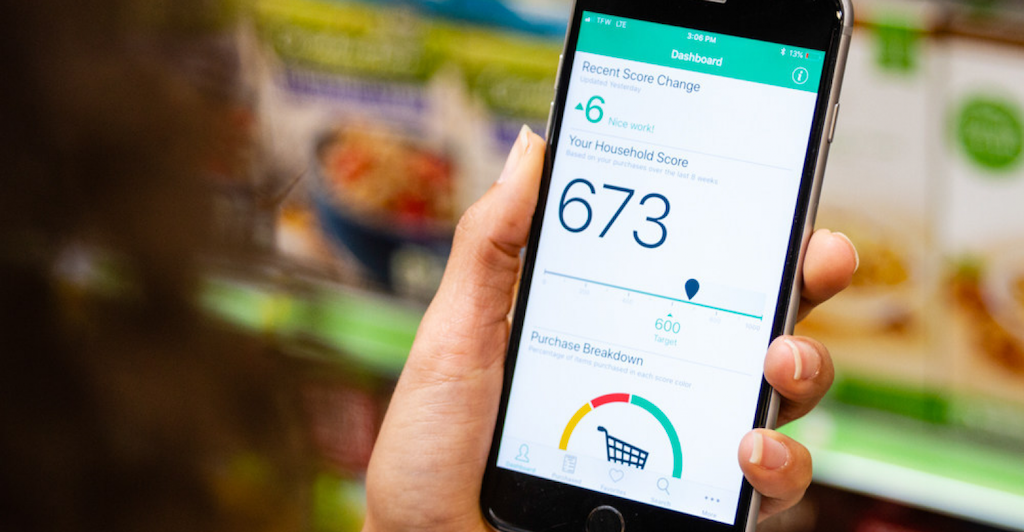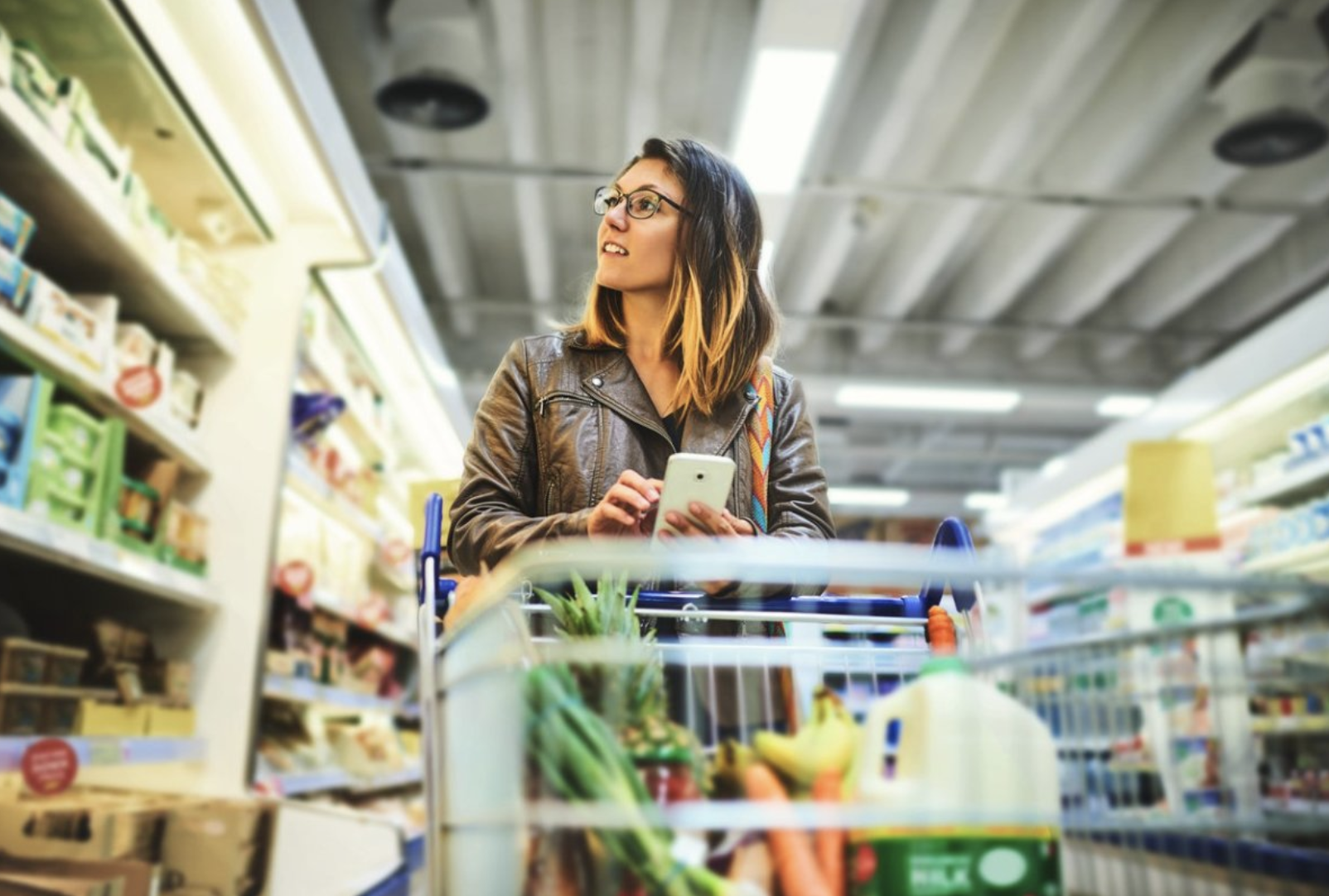3 Mins Read
Major US supermarket chain Kroger is currently testing a “food prescription” program where in-store nutritionists will help individual customers fulfil their dietary recommendations from doctors. The pilot program not only integrates Kroger Health Professionals into the consumer shopping experience, but also involves the use of the supermarket’s app that scores food based on nutritional value and lets users track their individual progress. It comes as personalisation takes off in the health and nutrition space, from food to our specific surroundings.
US grocery chain giant Kroger has launched a “food prescription” program for shoppers in Cincinnati, Ohio. It will involve in-store nutritionists and help guide shoppers to fulfil specific dietary recommendations from Kroger’s dieticians and medical health professionals. These recommendations will be tailored to each customers’ budget, level of cooking and lifestyle, and the nutritionists at the supermarket will help each individual stick to these goals.

“We find that a lot of physicians give difficult-to-follow nutrition advice…And that becomes very difficult for a patient to understand and implement,” said Bridget Wojciak, nutrition expert at Kroger. She adds that the program will help “fill the gap” when it comes to medical recommendations and the actual food choices made by individuals.
The pilot program will also involve Kroger’s OptUP mobile app, which will assign the store’s items with a nutrition-based point value in order to help users track their health goals. For the time being, the food prescription is focused on patients with diabetes, but the company is looking to eventually expand to include other conditions and everyday nutrition optimisation.
Kroger’s move to launch a personalised food prescription program comes as the personalisation of nutrition becomes more popular. With more scientific studies documenting the extent to which individuals are unique from each other – from variations in gut microbiome to our different responses to food – experts are developing ways to use food customisation as a route to health and wellbeing.

Japanese startup Open Meals, for example, are now smartifying food by 3D-printing sushi that has been injected with nutrients that individual diners need, based on their biometric and genomic data provided in a blood test prior to their visit. Singapore-based Alchemy FoodTech, on the other hand, is combining medical and biotechnology to lower the glycemic index (GI) levels of popular products such as white rice to fight the growing diabetes epidemic.
Individual customisation isn’t just taking over the food and nutrition world, but also the science of our environment and how it impacts health. Called exposomics, it involves studying all health-relevant environmental factors over the course of one’s lifetime. Combined with the rise in gadgets that have found ways to measure our individual heart rate, sleep quality and physical activity levels, we can use existing data on daily weather patterns, air pollution levels and exposure to light to figure out how our specific surroundings affect our personal wellbeing.
Lead image courtesy of iStock / PeopleImages.




